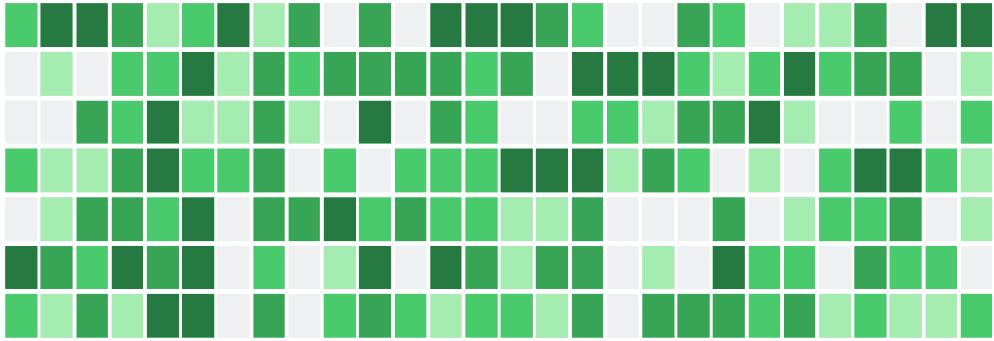Coding Bootcamp vs Degree: A Side By Side Comparison For Aspiring Engineers And Developers
Have you already been working in tech for a while? Are you considering switching jobs? Or are trying to decide which career path to take? Whatever the case is for you, there is always plenty of room for more coding pros in the world of tech.
Furthermore, accomplished coders have some of the most diverse opportunities for tech careers because their skills can be applied in such a wide variety of applications. From video game and UI designers to systems and network engineers, the options for coders are nearly limitless.
If you are considering coding as a career option, then you are probably facing the question that everyone must answer before breaking into this growing field: how can I learn to code?
Coding Bootcamp vs Degree
In the past, there were only two options for most individuals seeking a career in coding – learning independently or completing a degree in a traditional university setting. However, there is a third option today that offers many of the same benefits as a computer sciences degree, but without the hefty tuition fee.
This option is the coding bootcamp. Coding bootcamps provide an intensive education over a short period of time, and they equip students with practical skills through hands-on training and intuitive lesson plans.
Let’s take a side-by-side look at the pros and cons of a coding bootcamp vs degree, and hopefully by the end of this article, you will be able to decide what is right for you.

Coding Bootcamp vs Degree: Cost
Degree – It’s no secret that the cost of obtaining a computer science degree from a university is a huge drawback for anyone seeking higher education. With bachelor’s programs averaging over $100,000, and post-grad programs over $120,000, choosing to attend a university is an immense decision that is likely to affect you for the rest of your life.
Starting out your career with upwards of one hundred thousand dollars of student debt will be a factor you must consider when making any decision that affects the direction you want to take with your life. This can include where you live, the places you go, what kinds of jobs you can take, and even what you do for fun.
If you are concerned with the scope of your education, the cost of a degree may be worth it. However, the financial aspect will still be one of the most important factors to consider.
Coding Bootcamp – A coding bootcamp typically costs around one fourth of what a four year computer sciences degree could run you, and in some cases it could be much less.
This is possible because coding bootcamps are designed to teach you practical skills that prepare you for the specific career you want to pursue. On the other hand, universities will require you to take electives and other additional courses that may not be relevant to the job you hope to find.
Coding Bootcamp vs Degree: Scope of Education
Degree – As mentioned previously, a computer science degree covers a far more expansive range of topics over a longer period of time. Naturally, this means the education you’ll receive will be broader and more thorough.
Obtaining this type of education would be ideal for someone who aims to manage a large tech department or start their own business, but it is not necessarily a prerequisite to do either. Essentially, choosing to go for a computer science degree over a coding bootcamp depends on your individual needs for reaching your goals.
Coding Bootcamp – While a coding bootcamp is not as comprehensive in its scope of learning as a computer science degree, its purpose isn’t to teach you everything there is to know about the realm of technology. A coding bootcamp is focused around the core skills and technologies that employers look for in potential candidates.
However, if it is part of your long-term goal to earn your four year computer science degree, completing a coding bootcamp could prepare you with the necessary knowledge to test out of introductory courses. If this is something your institution allows, you may be able to earn college credits by successfully completing a proficiency exam, rather than fulfilling the requirements for an entire semester of college courses.
Coding Bootcamp vs Degree: Time Commitment
Degree – It shouldn’t come as a surprise that earning a four year degree requires a much larger time commitment than completing a coding bootcamp. You can choose to study part-time, but this still requires considerable time both in and out of the classroom.
Coding Bootcamp – A coding bootcamp does require a considerable time commitment, but you will have the option to attend either full-time or part-time. A full-time coding bootcamp will have you career-ready in less than four months. However, if you already have a full schedule, a part-time coding bootcamp might be the best option for you.
One great aspect of attending a part-time coding bootcamp is that the course is broken down into separate modules that you will complete one at a time. While this option takes longer than its full-time counterpart, it is still much faster than earning a four year degree.
Coding Bootcamp vs Degree: Time to Completion
Degree – Most bachelor degrees take about four years to complete when attending classes full-time. However, a lot can happen in four years. Students may have financial issues that require them to move into the job field and switch from full-time to part-time, or they may even have to put their studies on hold and stop attending altogether.
If you do find yourself in a situation where you are temporarily unable to attend, this can present several challenges. For instance, you’ll have to start paying off your student loans as soon as you stop going to school.
Furthermore, studies show that only about half of students enrolled in bachelor’s programs actually complete them, and of those who drop out, only about 30% re-enroll.
If you are planning to enroll in a university to obtain a bachelor’s degree in computer science, it is important to plan accordingly. Otherwise, you could find yourself paying off substantial student loan debt for years to come without having achieved your original goal.
Coding Bootcamp – Unlike a bachelor’s degree, a coding bootcamp can be completed in four months for a small fraction of the cost. This means you could be starting your career faster than you could finish one semester at a university.
Coding bootcamps are designed with your success in mind. Attending a coding bootcamp will give you a well-rounded, practical understanding of the fundamental skills and knowledge you need for your career.
Coding Bootcamp vs Degree: Time to Find a Job
Degree – Upon completing your bachelor’s in computer science, you will likely have many opportunities for employment. There is an immense need for professionals in the coding world, and adding a degree to your resume ensures that you will be considered by many employers.
However, many employers are looking for individuals who are highly specialized in a certain field. While having a degree will greatly increase your chances for consideration, individuals with specialized certifications and established portfolios may take precedence over college graduates.
This means that finding a job in a specific field could be difficult, and you might have to start in an entry-level position and work your way up.
Coding Bootcamp – On the other hand, coding bootcamps are highly specialized and subject-intensive. After completing a coding bootcamp, you will be ready to start working immediately. Coding bootcamps are intended to be extremely practical and hands-on, providing you with experience that is comparable to years of on the job training.
Coding Bootcamp vs Degree: Difference in Pay
Degree – The average median salary for college computer science graduates is around $100,000, which is a big motivator for anyone who is considering this degree. But there are some other important things you will need to factor in.
For example, you will most likely have significant debt upon entering the job market. It’s true that federal student loans are easy to acquire. However, they are usually not enough to cover your whole tuition, so you will need to take on additional debt from private creditors.
Let’s put this in terms of real dollars. Suppose you’ve taken on $100,000 of student loan debt while attending university. To pay it off in ten years, your monthly payment will be over $1,000. In addition, your total interest over the life of the loan would be over $30,000. That means your student loan debt will cost more than you’ll make in an entire year!
In addition, earning a degree takes as much as eight times what it takes to complete a coding bootcamp. That’s an additional three plus years of taking on debt when you could be earning a salary! When we consider all of these factors, we can see that earning a degree could actually become a considerable setback in comparison to a coding bootcamp.
Coding Bootcamp – After finishing a coding bootcamp, graduates can make anywhere from $50,000 to $70,000 per year. However, as your experience grows and your portfolio expands, your potential for earning increases significantly.
It may take a few years, but earning a six-figure salary with a coding bootcamp certificate is entirely possible. According to a recent survey, developers who attended a coding bootcamp can hit the $100,000 mark by the time they take their third coding job.
LearningFuze’s Coding Bootcamp
After considering all of the pros and cons of a coding bootcamp vs degree, we can see that entering the job market with a coding bootcamp certificate is a viable option for future coders.
Achieving your career goals is possible with a coding bootcamp certificate, and LearningFuze gives you the resources to make this a reality. With comprehensive career services and the largest network of employers, LearningFuze will continue to assist you until you find the job you’re looking for.
Additional Resources
You might like these

Looking for a reliable start in coding? Explore the world of coding bootcamps in San Diego for a fast-track, hands-on learning experience.

December 11, 2024
Wondering if attending a coding bootcamp is worth it? Explore the benefits, curriculum, and career prospects in our comprehensive guide.

February 22, 2024
LearningFuze shares steps on how to prepare for coding bootcamp: self-study, device setup, self-awareness, goals, routine, resolve, priorities & embracing unknowns.







